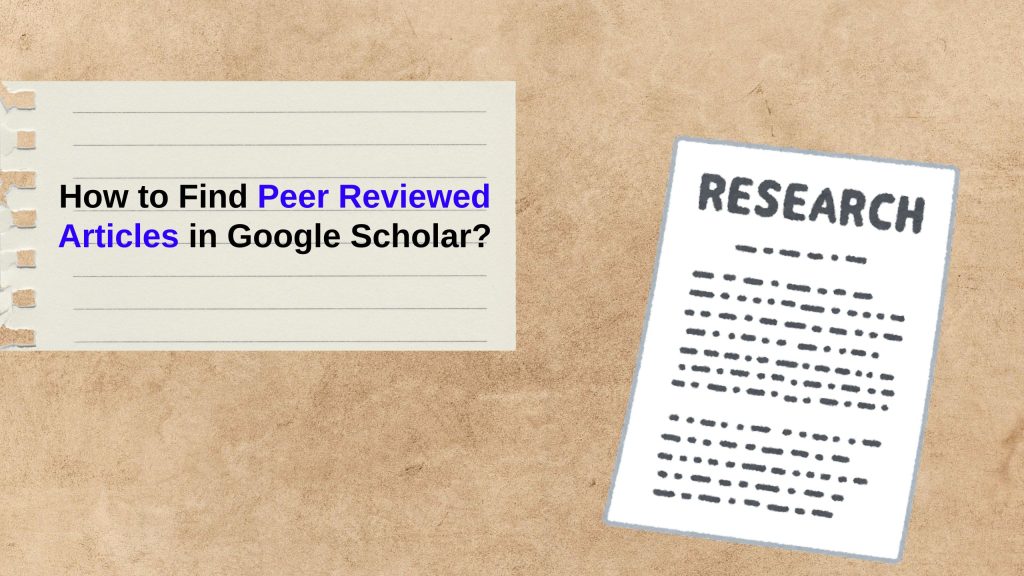How to Find Peer Reviewed Articles in Google Scholar

Individuals aiming to conduct research in a specific domain require access to documents that detail both current and past work to help drive further advancements in the field. In recent years, Google Scholar has emerged as a reliable and widely recognized platform for accessing scholarly articles. As a result, there has been a growing trend in searches for how to find peer-reviewed articles in Google Scholar across various search engines and platforms. Fortunately, locating academic or research articles on Google Scholar is not a difficult task – anyone can do it by simply following the steps outlined in the next section.
What is a Peer-Reviewed Article?
Before diving in, it’s important to understand what a peer-reviewed article actually is. These are academic papers that undergo a rigorous evaluation process by other experts in the field before being accepted for publication in scholarly journals. Peer-reviewed work often includes:
- A formal structure (abstract, methods, results, discussion)
- Citations and references
- Evidence-based findings
- Affiliation with reputable academic institutions or journals
Not all scholarly-looking articles meet these standards. Some may be preprints, conference proceedings, or opinion pieces, which aren’t peer-reviewed.
How to Find Article on Google Scholar
- go to google scholar website or search for google scholar in any search engine.
- Enter keywords related to the research area into the search bar. list of papers related to the entered topic would be onscreen.
- One can also use filters to find papers from a certain year or duration.
- One can search articles by author name, keywords, titles, etc. in google scholar website.
Although google scholar provides a list of scholarly articles on its portal, one can not distinguish between the peer reviewed and non peer reviewed articles. One has to go through the source website to find out whether the article is peer reviewed or not. This process is time taking and confusing for a newbie or anyone who does not know about the type or article.
Find Peer-Reviewed Articles in Google Scholar Steps
· Go to Google Scholar
- Visit https://scholar.google.com
· Enter Your Search Keywords
- Type in your topic, title, author name, or keywords related to your research.
· Review the Search Results
- Look at the titles, authors, and journals listed under each article.
- Peer-reviewed articles are often published in academic journals (e.g., Nature, Science, Journal of Psychology).
· Identify Reputable Journals
- Check if the article is published in a known scholarly journal. Use databases like Ulrichsweb or SCImago Journal Rank to verify if the journal is peer-reviewed.
· Click on the Article Title
- This may take you to the publisher’s website or journal page. Look for sections like “About this journal” to confirm peer-review status.
· Use Advanced Search (Optional)
- Click the menu icon (☰) in the top-left corner and select Advanced search.
- You can search by author, journal name, or specific phrases to narrow down results.
· Look for PDF Links or Library Access
- Some articles are available as PDFs to the right of the result. If not, access them via your university or institution’s library for full text.
· Cross-Check with Library Databases
- Use your school or college’s academic library website to verify if an article is peer-reviewed.
To find peer reviewed articles one can rely on the Conference Inc. This portal works in the field of academic and scientific research developments. it provides articles published in national or international journals. All types of peer reviewed articles can be found at Conference Inc article indexing page.
oogle Scholar is a convenient starting point for academic research, but it’s essential to verify that the sources you find are peer-reviewed. Use a combination of search strategies, advanced tools, and external verification to ensure you’re accessing credible academic work.
